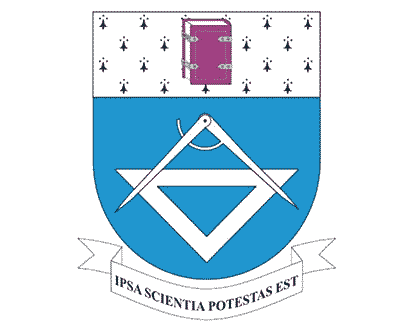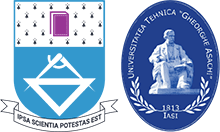Engineer’s First Commandment: Create without boundaries!
The engineer is not a second hand professional. He is a person willing to leave his mark in the making of the world and therefore he must be creative, and able to communicate and sell its ideas. This is the fact that Ph.D. Prof. Eng. Iulian Ciocoiu from the Faculty of Electronics, Telecommunications and Information Technology of Iasi talked about to those present in the Theatre of the Technical University of Iasi (TUIASI) on Tuesday, the 18th of July, since 17.00 hours. He lectured on the occasion of the International Festival of Education – IFE 2013 – “About engineering … and boundaries”. The event was a motivational seminar meant to assure the auditorium that the profession of engineer is – its time due – a lot like love: rather an endurance run, than a speed run.
The University is the place where you can become anything you want to be, asserted the professor Iulian Ciocoiu. However, the University itself is at a crossroads, as pointed Ph.D. Prof. Daniel Condurache – vice rector for computerisation – in the conference’s opening. He emphasised that we all have both the chance and the challenge to coexist between two paradigms, and that the importance of scientific communication is growing steadily in the 21st century. The vice rector offered as example scientists as Stephen Hawking and Grigore Moisil, well known and charismatic personalities, of whom many have heard, but few have read them.
The professor Ciocoiu had the same approach during its hour long lecture. He detailed the evolution of the engineer’s profession and invoked its representations, in order to underline that the engineer’s mission can be summarised in the terms of “intelligent invention”. He also defined at the same time the overlapping areas of the engineering, mathematics, science and technology fields. The professor explained that the candidate for an engineering career is not only to be an analytical character and problem solver, but also develop artistic and communication skills: “he must be able to create, present and sell to lay customers”.
In other words, Iulian Ciocoiu heartily spoke about a career to who one must be totally dedicated and for good reason, as the financial benefits as attractive. In this aspect, he presented job statistics that proved that the engineers are among the best paid professionals in Europe. Iulian Ciocoiu – concerned about the education of the future engineers – underlined the global trend of interdisciplinarity and of engineering sciences and humanities’ convergence, as well as the necessity to enlist in the technical universities outstanding pupils with early interactive engineering education. He pointed out the increasing importance of new technology in education, as well as the importance of the “global engineer” concept. Thus, he ascertained that the “one to one” student-teacher interaction has not diminished its role, but it rather became more important in this age, because the professor is the most appropriate person not only to disseminate knowledge, but also to discern, to inspire and to counsel the creative student. More the case in this particular age, when each course must became an entertainment performance, regardless of the employed methodology. The innovative engineering education models must take into account the new technologies, to capitalise on curiosity, to develop in students those so-called “soft-skills” – critical on the current labour market, and not in the least to emphasise the team work. However, the core creed of any educational endeavour must be the will to act for the greater good and to believe that the profession of engineer must transcend any boundary.
There is a certain misconception regarding the engineer as a second hand intellectual model
Interview with Ph.D. Prof. Eng. Iulian Ciocoiu from the Faculty of Electronics, Telecommunications and Information Technology
In your opinion, is there a reason for the pupils of the outstanding high schools in Romania to avoid technical specialities, despite the abundance on the Internet of popular science platforms and resources?
There are several modifications with negative impact on higher education in general, and the technical education in particular. The suspension of the preliminary examination, a very tough exam before 1989, has been a regrettable decision and a major reason for gifted high school pupils to choose a technical faculty. Furthermore, the elimination of exact sciences such as mathematics and physics from the Baccalaureate exam had negatively influenced the public perception concerning technical disciplines. There is a certain misconception these days regarding the engineer as a second hand intellectual model, some kind of jack-of-all-trades with some small mathematical skills – at the best – but under no circumstance a high end intellectual profile having creativity, critical analysis skills, communication abilities and even professional ethics.
How do you believe all these representations may be changed?
I believe that there must be a coherent approach on multiple planes. I think that now is the time to be brought at the same table academic environment and government decision factors, as well as companies’ representatives. It is the moment to be discussed fundamental issues that in other industrial developed countries are systematically addressed, to be identified system’s problems and solutions. Secondly, I think that there is need for a coherent pre-university policy. I believe that there must be institutional contact between universities (technical or not), local educational boards, and high schools – especially high school of certain renown. I believe that at some point there must be found the possibility for academic environment teams of teachers and students to permeate high schools and primary schools in order to hold presentations of interesting experiments, mechanisms, devices able to stir the curiosity and eventually the passion of later to be engineers. The values are though at early ages and, obviously, it is not only the school’s task to see them take root.
Are you not concerned about the possible negative impact of implementing these new technologies in the academic environment?
I believe that the ease of access to the online didactic resources holds both advantages and traps. It is obvious that the expenses downsize, the globalisation, the possibility of access from virtually anywhere, anytime to online resources are undeniable advantages. On the other hand, it is absolutely imperative that a specialised staff to be able to filter this ocean of information, to accentuate where needs be, to discern the relevant information, to place it into appropriate context. This is not an easy task and it is not always a task up to the everyday student. There are, however, certain benefits out of these self-organised online educational systems: interest groups of students or general users are almost instantaneously formed, sharing common preoccupations, teaching each other – yet, anyway, a mentor remains important in order to keep under control, in some measure, all this process.
Do you believe that the tutors are ready to efficiently implement these technologies and the students to comprehend their full didactic potential? There is, after all, a certain tendency of the students to use them for academic fraud.
It is true that the online technology and the advanced communication devices may hold unpleasant surprises, but in the end it is up to the teacher to elaborate exam’s subjects and clever examination methods able to circumvent, or to make difficult – if not impossible – the use of such schemes. The bottom line is that each technology has its pros and cons, and the important thing is to properly make use of the instruments it makes available. On the other hand, there is a perpetual concern of the educational programs to systematically address the topics of professional ethics, plagiarism, or any other means of breaking the enforceable laws in the field. The education remains, in the end, the answer to this kind of problems.
The universities are almost compelled to diversify their communication methods range
The pedagogy manuals are addressing this aspect, yet how viable do you think their implementation would be here and now at the Technical University of Iasi?
I think the first step is, obviously, to identify the problems we are dealing with and then to find the solutions meant to address them. I don’t necessarily believe that there are generally viable miracle solutions, but rather certain common issues that all technical universities are dealing with and that these would be better brought into light by discussing them. This may take place in an formal or informal context, but more importantly is that the people in the system to be able to sit at the same table and identify the problems, find possible answers, and, finally, meet together the necessity for progress, sustainable development and shaping a better society than the one we are living in.
This association of engineering, of science with art and creativity, is it a marketing strategy, or rather a professional reality, albeit a less conspicuous one?
This is a reality. This interdisciplinary training is obvious and mandatory and there are a series of projects relevant in this aspect. I have recently witnessed several possibilities to seamlessly blend the technical disciplines with other rather unconnected fields. There are, for example, certain universities that are holding their physics courses in a very attractive way, by bringing together students from faculties or colleges that are studying the gastronomy. There are Materials Science faculties that are organizing common sessions with Fashion Design students. As for more technical fields, it is obvious that any progress in medical informatics, medical data and image processing is made possible by complex interdisciplinary teams of engineers, programmers, and physicians; there are very complex problems that, on one hand, are regarding an obvious social need – such as telemedicine, or permanent monitoring of under treatment patients; on the other hand, improving the quality of life often requires the advancement of existing technological solutions or the development of new ones.
Do you believe that in this context of paradigmatic change, the education through performance and art – as shown at FIE – represents a viable solution?
The technical universities are almost compelled to diversify their communication methods range concerning their mission, role and objective factors in the life of such an institution. There is a certain perceivable pressure, and not only in Romania, but also in high developed industrial countries, residing in the fact that graduates of outstanding high schools are migrating towards fields of less significant intellectual effort, where financial benefits are most rapidly and consistently gained; on the other hand, any country that aims at sustainable development must rely on a high quality engineering core.
The Press Office of TUIASI



